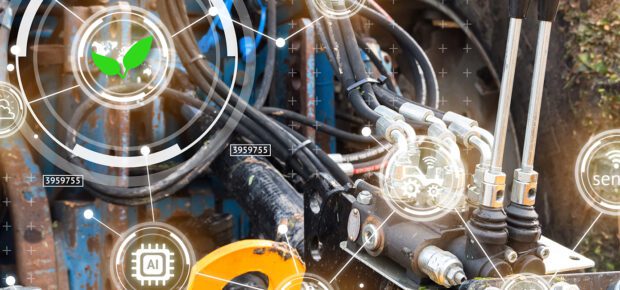January 25, 2024
Waste management is one of the foundations of society. Without it, we wouldn’t have functioning cities.
But the amount of garbage that humans produce over time has increased by staggering proportions. According to the World Bank, it will likely continue to do so, increasing 70% by 2050 to 3.4 billion tons.
A recent article in the IEEE Smart Cities newsletter notes that conventional methods of handling garbage may not be able to handle the increase. It calls for increased deployment of artificial intelligence to increase recycling rates and make collection more efficient.
Here’s a look at some of the possibilities:
- Machine vision for recycling: Separating recyclables from solid waste headed for the landfill is often done by humans. It’s labor intensive, and the cost of labor can exceed the price recycling centers get for materials. It’s particularly hard with different types of plastics.
- Smart garbage cans and predictive analytics: IoT-enabled public trash cans might be able to send alerts when they’re full. That’s a benefit in itself, especially if it stops people from throwing garbage on the street when there’s no room at the bin. But data from the bins can also be used to create a bigger picture: predicting when trash cans are likely to be full before they are actually full, and planning the most efficient pickup routes. The data can also be used to determine the best place for new garbage cans.
- Route optimization for garbage trucks: Artificial intelligence algorithms can also make garbage collection smarter and greener. AI can map out the best routes for collection trucks, considering how full the bins are, traffic jams and even environmental factors. This might mean less fuel burned and fewer emissions.
- Predictive maintenance: Trash collection can take a heavy toll on equipment. To keep trash trucks and smart bins in tip-top shape, AI may be deployed to keep an eye on the condition of equipment and vehicles, predicting when they’ll need a fix. This might mean less downtime and more efficient trash handling.
While there are numerous possibilities, improving recycling technology is one of the biggest opportunities in the field.
“The biggest challenge in the recycling process is separating waste for recycling,” said IEEE Senior Member Euclides Chuma. “Although there are automated technological solutions for this separation process, these solutions are expensive. It is necessary to reduce the costs of automatized equipment used in the recycling process. The ability to increase recycling rates has global impacts.”
Learn more: The IEEE Standards Association has developed an interactive tour of urban landscapes to highlight evolving technologies and role of standards in our everyday lives. Check it out.






 Meaningful Momentum or Running in Place?
Meaningful Momentum or Running in Place? AI Through Our Ages
AI Through Our Ages Liquid Infrastructure: Our Planet's Most Precious Resource
Liquid Infrastructure: Our Planet's Most Precious Resource The Impact of Technology in 2025
The Impact of Technology in 2025 Quantum and AI: Safeguards or Threats to Cybersecurity?
Quantum and AI: Safeguards or Threats to Cybersecurity? Why AI Can't Live Without Us
Why AI Can't Live Without Us Bits, Bytes, Buildings and Bridges: Digital-Driven Infrastructure
Bits, Bytes, Buildings and Bridges: Digital-Driven Infrastructure Impact of Technology in 2024
Impact of Technology in 2024 Emerging AI Cybersecurity Challenges and Solutions
Emerging AI Cybersecurity Challenges and Solutions The Skies are Unlimited
The Skies are Unlimited Smart Cities 2030: How Tech is Reshaping Urbanscapes
Smart Cities 2030: How Tech is Reshaping Urbanscapes Impact of Technology 2023
Impact of Technology 2023 Cybersecurity for Life-Changing Innovations
Cybersecurity for Life-Changing Innovations Smarter Wearables Healthier Life
Smarter Wearables Healthier Life Infrastructure In Motion
Infrastructure In Motion The Impact of Tech in 2022 and Beyond
The Impact of Tech in 2022 and Beyond Cybersecurity, Technology and Protecting Our World
Cybersecurity, Technology and Protecting Our World How Technology Helps us Understand Our Health and Wellness
How Technology Helps us Understand Our Health and Wellness The Resilience of Humanity
The Resilience of Humanity Harnessing and Sustaining our Natural Resources
Harnessing and Sustaining our Natural Resources Creating Healthy Spaces Through Technology
Creating Healthy Spaces Through Technology Exceptional Infrastructure Challenges, Technology and Humanity
Exceptional Infrastructure Challenges, Technology and Humanity The Global Impact of IEEE's 802 Standards
The Global Impact of IEEE's 802 Standards Scenes of our Cyber Lives: The Security Threats and Technology Solutions Protecting Us
Scenes of our Cyber Lives: The Security Threats and Technology Solutions Protecting Us How Millennial Parents are Embracing Health and Wellness Technologies for Their Generation Alpha Kids
How Millennial Parents are Embracing Health and Wellness Technologies for Their Generation Alpha Kids Space Exploration, Technology and Our Lives
Space Exploration, Technology and Our Lives Global Innovation and the Environment
Global Innovation and the Environment How Technology, Privacy and Security are Changing Each Other (And Us)
How Technology, Privacy and Security are Changing Each Other (And Us) Find us in booth 31506, LVCC South Hall 3 and experience the Technology Moon Walk
Find us in booth 31506, LVCC South Hall 3 and experience the Technology Moon Walk Virtual and Mixed Reality
Virtual and Mixed Reality How Robots are Improving our Health
How Robots are Improving our Health IEEE Experts and the Robots They are Teaching
IEEE Experts and the Robots They are Teaching See how millennial parents around the world see AI impacting the lives of their tech-infused offspring
See how millennial parents around the world see AI impacting the lives of their tech-infused offspring Take the journey from farm to table and learn how IoT will help us reach the rising demand for food production
Take the journey from farm to table and learn how IoT will help us reach the rising demand for food production Watch technical experts discuss the latest cyber threats
Watch technical experts discuss the latest cyber threats Explore how researchers, teachers, explorers, healthcare and medical professionals use immersive technologies
Explore how researchers, teachers, explorers, healthcare and medical professionals use immersive technologies Follow the timeline to see how Generation AI will be impacted by technology
Follow the timeline to see how Generation AI will be impacted by technology Learn how your IoT data can be used by experiencing a day in a connected life
Learn how your IoT data can be used by experiencing a day in a connected life Listen to technical experts discuss the biggest security threats today
Listen to technical experts discuss the biggest security threats today See how tech has influenced and evolved with the Games
See how tech has influenced and evolved with the Games Enter our virtual home to explore the IoT (Internet of Things) technologies
Enter our virtual home to explore the IoT (Internet of Things) technologies Explore an interactive map showcasing exciting innovations in robotics
Explore an interactive map showcasing exciting innovations in robotics Interactively explore A.I. in recent Hollywood movies
Interactively explore A.I. in recent Hollywood movies Get immersed in technologies that will improve patients' lives
Get immersed in technologies that will improve patients' lives